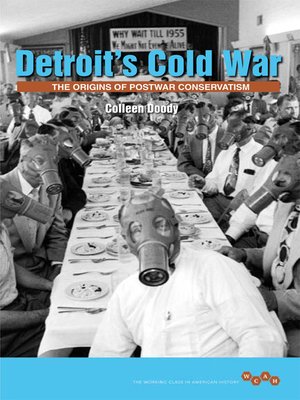Detroit's Cold War
ebook ∣ The Origins of Postwar Conservatism · Working Class in American History
By Colleen Doody

Sign up to save your library
With an OverDrive account, you can save your favorite libraries for at-a-glance information about availability. Find out more about OverDrive accounts.
Find this title in Libby, the library reading app by OverDrive.



Search for a digital library with this title
Title found at these libraries:
| Library Name | Distance |
|---|---|
| Loading... |
"Colleen Doody agrees with those scholars who see a contested New Deal liberalism and a powerful conservation before the latter's flowering in the 1970s. Her most important contribution is to show how 'the ideas that became central to this [conservative] movement developed at a grassroots level much earlier.'"—Labour/Le Travail
"[A] well-written, and solidly researched book. Detroil's Cold War is highly recommended. It will be useful in undergraduate courses, and is an important contribution to the emerging scholarship on the rise of conservatism in twentieth century America."—American Catholic Studies
"Detroit's Cold War is a concise, clearly written, and sensibly organized book. It highlights important trends in the United States that have yet to run their course."—The Michigan Historical Review
"Colleen Doody's insightful study of Cold War Detroit introduces readers to a profoundly conservative political history that maps onto and intersects with the history of labor radicalism in the Motor City."—American Historical Review
"Urban historians and historians of conservatism will. . . value the detailed research on the varied dimensions of anticommunist politics in the heart of a New Deal protégé."—The Journal of American History
"An important and well-timed book. Doody's rich historical analysis helps to situate the contemporary mistrust and criticism toward unions, collective action, and the welfare state throughout the USA."—Labor Studies Journal
| Colleen Doody is an assistant professor of history at DePaul University.







